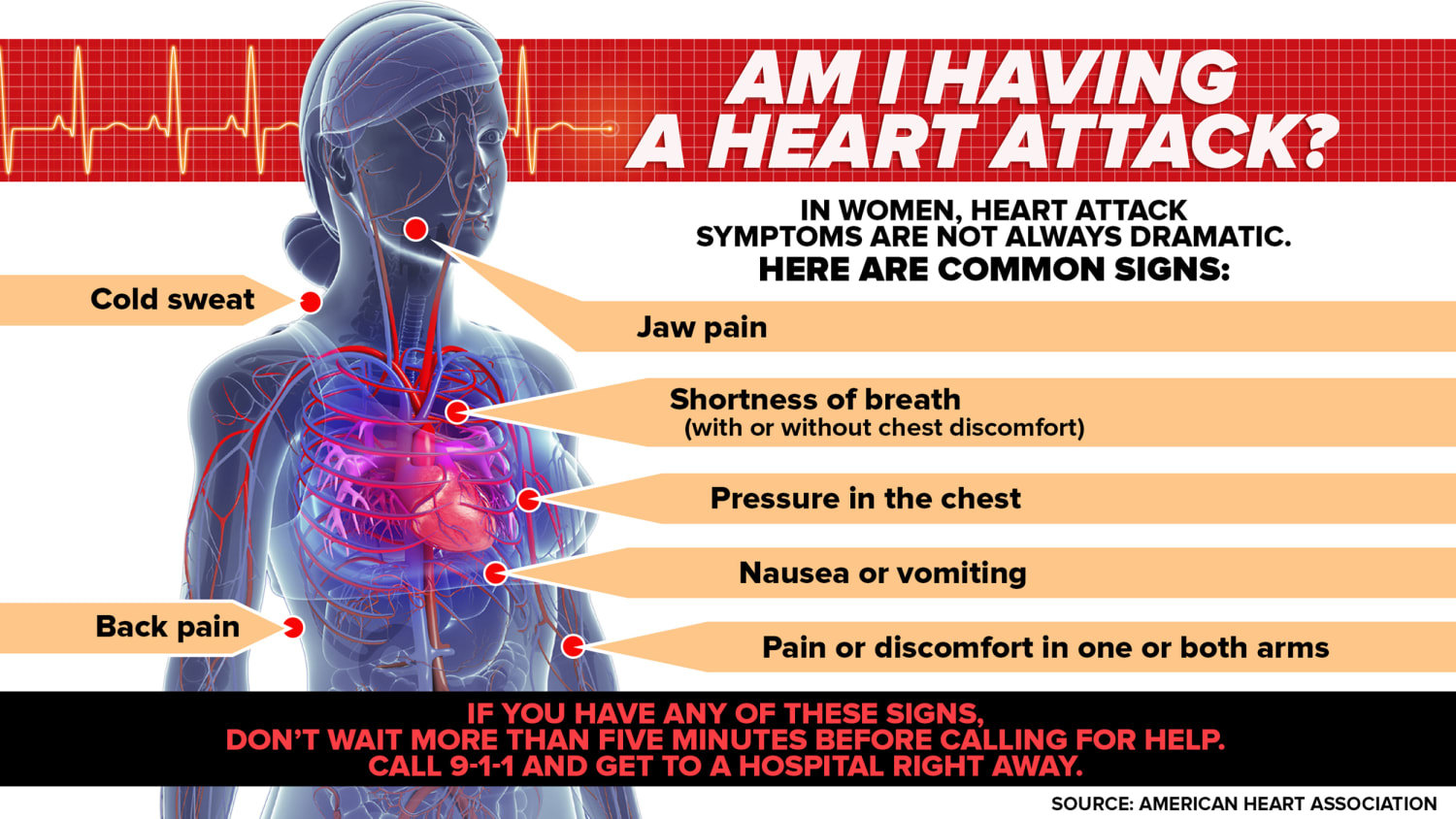
A couple days ago I had pressure in my chest sweating and difficulty breathing and lasted for about 15 minutes which are signs of a heart attack or other heart conditions. This is sometimes described as feeling like a bad toothache.

Sweating or cold sweat.
Chest pain and jaw pain. This is sometimes described as a stabbing pain or a feeling of tightness pressure or squeezing. This is sometimes described as feeling like a bad toothache. Chest pain when it occurs with jaw pain is a classic sign of a myocardial infarction even though studies suggest that females are more likely to get jaw pain with chest pressure during a myocardial infarction.
Angina is yet another condition that may cause chest pressure with jaw pain. I have been getting chest and jaw pain for about two weeks now. I also have been sharp pain on the left part of my chest where my heart is.
A couple days ago I had pressure in my chest sweating and difficulty breathing and lasted for about 15 minutes which are signs of a heart attack or other heart conditions. Pain in the jaw is a lesser-known indication you may be at risk HEART attack symptoms include difficulty breathing severe chest pain and feeling sick. But you could also be at risk.
Uncomfortable pressure squeezing fullness burning tightness or pain in the center of the chest Pain numbness pinching prickling or other uncomfortable sensations in one or both arms the back neck jaw or stomach. Get help right away if you have chest pain or discomfort along with any of these symptoms especially if they last longer than five minutes. Pain or discomfort in other areas of the upper body including the arms left shoulder back neck jaw or stomach.
Difficulty breathing or shortness of breath. Sweating or cold sweat. The most common symptom of heart attack for both men and women is chest pain or discomfort.
But women are more likely than men to experience some of the other symptoms such as jaw or back pain shortness of breath and nausea or vomiting. Heart problems are more common among people who have high blood pressure diabetes or high cholesterol. Pain or discomfort in your chest that suddenly occurs and doesnt go away.
Pain that may spread to your left or right arm or to your neck jaw back or stomach. For some people the pain or. Chest pain is when you feel discomfort or pain between your neck and upper abdomen.
Chest pain appears in many forms ranging from a sharp stab to a dull ache and crushing or burning sensations. Any organ or tissue in your chest can be a source of pain including your heart lungs esophagus muscles ribs tendons or nerves. A heart attack can cause pain in other areas of the body besides the chest like the arms back neck and jaw.
Women in particular may experience jaw pain. You have sudden chest pain that. Spreads to your arms back neck or jaw.
Makes your chest feel tight or heavy. Also started with shortness of breath sweating and feeling or being sick. Lasts more than 15 minutes.
You could be having a heart attack. Call 999 immediately as you. Jaw Pain in Heart Attack Chest pain due to a heart attack may radiate to the jaw usually lower jaw mandible rather than the upper jaw maxilla.
Often the pain is isolated to the TMJ temporomandibular joint just in front of the ear or the angle of the mandible. Heart pain can also be noted in the jaw and teeth. It is more common for heart-related discomfort to affect the lower jaw than the upper jaw.
Occasionally the discomfort will. If you have any of these signs call 9-1-1 and get to a hospital right away. Uncomfortable pressure squeezing fullness or pain in the center of your chest.
It lasts more than a few minutes or goes away and comes back. Pain or discomfort in one or both arms the back neck jaw or stomach. Another cause of chest pain overnight thats accompanied by jaw pressure is leaky valves in the heart.
An echocardiogram will detect if this is the case. Leaky valves as well can decrease cardiac blood flow. Inflammation As a Cause.
Costochondroitis is an inflammation of the cartilage in that area of the body. Symptoms of costochondroitis include chest pain and pain that gets worse when you cough or take a deep breath. Myofascial pain syndrome is also called chronic myofascial pain CMP Pressure on certain points of the muscles causes referred pain meaning the pain is felt elsewhere in the body.
The cause is believed to be muscle injury through overuse either from sports or from a job requiring repetitive motion.